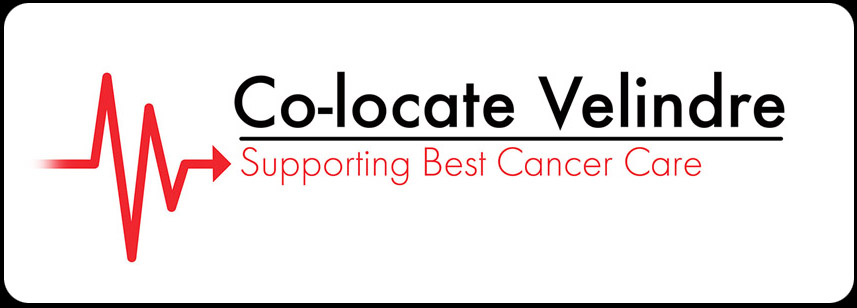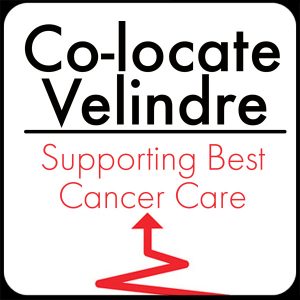Mr Vaughan Gething MS
Minister for Health and Social Services
Dear Mr. Gething,
14th January, 2021
As a large group of clinicians who are specialists in the diagnosis, treatment and care of cancer patients in South-East Wales, we recognise the pressing need to address the ageing facilities of the Velindre Cancer Centre (VCC) in north Cardiff. We therefore welcome the independent advice from the Nuffield Trust on the proposed model for non-surgical tertiary oncology services in South East Wales.
We agree with the report that the approach to cancer service planning cannot be the responsibility of a single organisation that is only delivering part of the cancer pathway, as has been the case with Velindre University NHS Trust’s Transforming Cancer Services (TCS) programme.
We agree that co-location with an acute hospital would provide safer acute in-patient care, improve support from other specialties, create a better base for research and be in line with best practice elsewhere. A clear implication from the report is that the best long-term future for Velindre’s acute oncology services, beds for acutely unwell patients and clinical research is on an acute hospital site, alongside other surgical, haematological and paediatric oncology colleagues, as well as vital medical, surgical and intensive care services.
Whilst the report is highly professional and well balanced, it is limited by the short time- scale for its publication and by its questionable terms of reference. We are troubled that, in consequence, it seems too ready to accept as inevitable the construction of the ‘stand-alone’ new building proposed by the TCS programme. The Nuffield Trust seems to endorse a medium-term, ‘split-site’ solution, similar to the Ambulatory Hub model outlined in the Mount Vernon report (2019). In this model, high-volume, low-risk cancer services would be delivered at Northern Meadows, whilst acute oncology, most in- patient services and research would be on an acute hospital site.
We strongly doubt this will deliver the best service for patients, and whether it is the best use of public funds. Ambulatory units can deliver the important goal of care close to patients’ homes. However, we question the logic and huge expense of constructing an ambulatory unit within 3.5 miles of a projected new cancer centre on an acute hospital site. This seems particularly misguided, as the report envisages the viability of the ambulatory unit will be limited by the life-expectancy of new radiotherapy machines, whilst Mutual Investment Model payments from public funds would extend far beyond this period. Furthermore, there would be logistical and financial benefits from integrating plans for the new cancer centre with the re-development of University Hospital Wales (UHW) – a factor that was not a realistic possibility, at the inception of TCS.
The Nuffield Trust states that a full options appraisal of possible clinical models was beyond the remit of its report. We see in this as a missed opportunity which should be rectified. Evidence and expert opinion contained within the report make it clear that patient safety, multi-disciplinary care, training, and continuation of world-class clinical research would all be significantly compromised by failure to co-locate most, if not all, cancer services with an acute hospital. Furthermore, we believe that a stand-alone model is already out-of-date, is out of step with international standards of excellence and lacks future-proofing.
It is not clear why the report concludes that it will take too long to pursue an alternative, co-located ‘full replacement’ model. This conclusion is insufficiently supported by evidence and is open to challenge. The recent, rapidly-constructed Lakeside Wing project at the UHW site, built within months of the start of the COVID-19 pandemic, illustrates what can be achieved in a short time, within limited space and when there is a pressing clinical need, as is clearly the case for the VCC’s ageing facilities.
The report does not consider alternatives beyond a 10-15 year interim solution. We share the view that we have a once-in-a-half-century opportunity to integrate much- needed building projects for both VCC and UHW, along with other essential evolution of cancer care in the region’s Health Boards.
Patients and the public need to be reassured that a new location and a new model of care will not compromise Velindre’s long-established and well-deserved reputation for high-quality cancer treatment and care, and for exceptional patient satisfaction. We are therefore concerned that the report did not regard the current proposals as any more than a “reasonable” way forward. This is clearly not an endorsement of the current planned direction, an approach that has already consumed considerable time and money. We therefore call on Welsh Government to assume direct responsibility for addressing deficiencies in leadership and planning pointed out in the Nuffield report. There must be a formal review, including an updated, full options appraisal and re- assessment of some of the prior assumptions made by TCS which are insufficiently challenged in the report. This can be done at pace.
We are convinced that there is an opportunity to integrate existing plans for the VCC new-build with those for a reconfigured UHW. We believe that this would be a logical extension of many of the findings of the Nuffield Trust report and that this can be achieved more rapidly than the 10-15 year time-scale suggested in the report. It would also provide valuable flexibility in the greatly-altered landscape following the COVID-19 pandemic and Brexit. Above all, it would represent a more ambitious, genuinely transformative vision for delivering improved cancer survival outcomes for patients, and better value-for-money for the public than the TCS model considered within the limited scope of the Nuffield Trust report.
We would welcome a meeting with you to discuss our views further and to explore potential solutions together.
Yours sincerely,
The undersigned (in alphabetical order, by surname): (Names removed to protect privacy)
The letter sent to the health Minister, Mr Vaughan Gething, was signed by 163 senior clinicians. The vast majority of these are Consultants within their field of practice.
A number of the signatories are Professors.
The specialities represented include the following: Anaesthetics/Pain management.
Cardiology
Colorectal surgery.
Dermatology
Emergency Medicine
Endocrine/Neuroendocrine Surgery
ENT surgery (Ear Nose and Throat) Gastroenterology
Gastrointestinal Surgery (Upper and Lower GI) General Medicine
General Practice
Gynaecological Surgery
Haematology
Head and Neck Surgery
Hepatology
Hepato-Biliary Surgery
Intensive Care
Nephrology
Neurology
Oncology/Clinical Oncology
Ophthalmological Surgery
Orthopaedic Surgery
Paediatrics
Paediatric Orthopaedics
Palliative Care
Psychiatry
Public health Radiology/Interventional radiology Respiratory/Chest Physicians Rheumatology
Urological Surgery
Vascular Surgery
All of the above will deal with the care of patients who have a diagnosis of cancer. For some it represents the main part of their clinical work.
There is NO field within health care that does not have a part to play in the screening, diagnosis, treatment, care of, recovery or palliation of patients with cancer.
The 163 signatories are a cross section of health care in South East Wales.
These people are the experts!
They understand the immensely complex and overlapping needs of these patients! Please listen to the experts.

